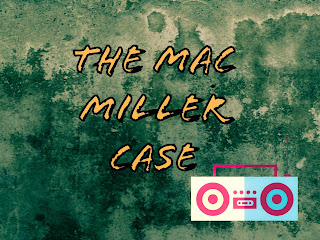Social Media Police
Law enforcers have a
stalking problem and the victim is you.
There has been a recent advent of police work that is really starting to
take shape and it is centered around policing social media profiles. After a series of interviews with social media
specialists, conversations with law enforcers, and discussions with constitutional
law experts, there was a consensus gathered that purports to these policing
services not being well-regulated, operating on many false allegations of just
causes, and violating many laws on a state and federal level. When speaking to law enforcers about the
social media policing that they participate in, not one agency could provide details about what types of processes are undergone, who these individuals
are that are trolling people’s accounts, and what are the reasons for it.
Due to this, there were
numerous responses from the other interviewed persons that suggested that the
police departments that are doing this do not have much scope of this suggested
law enforcement. In other words, it was
inferred that the police departments that are doing this are simply looking for
possible criminal activities on a general level and using these services to harass citizens as well as to arrest them. This is a twenty-four hour
ordeal, and many experts are stating that police departments have officers who
make fake profiles to attempt to solicit criminal activities and simply capture profile information to pass it along with no legal reason attached. This is where the constitutional experts come
into effect. That is, these experts are
claiming that police departments are engaging in an enormous entrapment scheme and simply abusing their authority. However, because this unusual form of police
work is not well-regulated or spoken about by law enforcers or other members of
society many of the illegal acts by these so-called police officers carry on
with little intervention or oversight. A
unique problem develops because of this stalking work by police departments who
perform these tactics.
The problem is that police
officers are identifying people who they think they can generate a case on. Specifically, police officers will find a
profile that they believe has identifiers of criminal activity and will
eventually contact them through a fake profile or even find them in society and
stalk them. Police officers are,
essentially, using the advent of social media to easily target a citizen and
hopefully catch them doing something illegal.
In an interviewee's words: “This is laziest form of police
work I have ever seen and it says a lot about what our police agencies are
really doing these days. I think that it
is a troubling issue in our society when police officers have to troll accounts
because of their laziness about more pressing issues.” Of this, it is necessary to mention that most
of the trolling and identifiers that are being used are questionable criminal
acts or not even an illegal posting, picture, thread, or other social media
practice. Explaining more, police departments
that are doing these perverted tactics are looking at commonalities and
suggesting that they are a reason to investigate or stalk a person. Some of these identifiers are individuals who
like music and movies that are related to drug use or gang activities, anti-government
or anti-police media, memes and self-taken pictures or videos that demean law
enforcers, personal postings that slander law enforcers, and group likings that may relate
to any of the aforementioned content.
Essentially, the social media police are taking common likings of media
and communication and turning them into a reason to go try to arrest or annoy someone. In other words, these identifiers are not uncommon social media
activities and do not include threats, postings that entail actual images or
statements about illegal activity, or other alarming behaviors that would cause
a legitimate concern for the safety and well-being of an individual or others.
The secrecy of these social media stalkers is entering the courts and causing people to plead
guilty to charges that may have never even come up if it was not for these
police trolls. To wit, social media
police are not telling accused defendants, prosecutors, or courts that they
were targeted because of a disliked social media situation. More specifically, the social media Gestapo is simply targeting a person and arresting or harassing them for something that they are
doing while in society and not connecting it to a social media experience that
they came across. For example, these
police officers will locate a target and wait till they do something that is
arrestable without letting the individual know that they were selected because
of something they did on social media.
That is, a person can say something like “I think marijuana should be
legal” on their Facebook page and then the police will stalk them and arrest
them for smoking weed somewhere. Or, a person who posts a video about police misconduct and then finds themselves being pulled over and searched. Other
examples can be used by simply substituting the phrases, posts, likes, and
other social media endeavors that millions of people do on a daily basis.
Overall, technology can
be used by police officers to investigate and arrest people when something
legitimately illegal is going on, but this does not appear to be the majority
of tactics used in this new branch of police work. Police officers are simply feeding other
officers information about a person without confirmation that they were the ones behind
the social media accounts and arresting people by following them around and
waiting for something to arise, or making up reasons to subject an individual to police contact. The constitutionality
of this is enormous. The question is how
many people have been targeted by law enforcers and arrested for something
because the social media police did not like their taste or lifestyle choices? The bad side of technology tends to come
about when law enforcers apply it to their profession. Fucked-up, America. Fucked-up!



Comments
Post a Comment